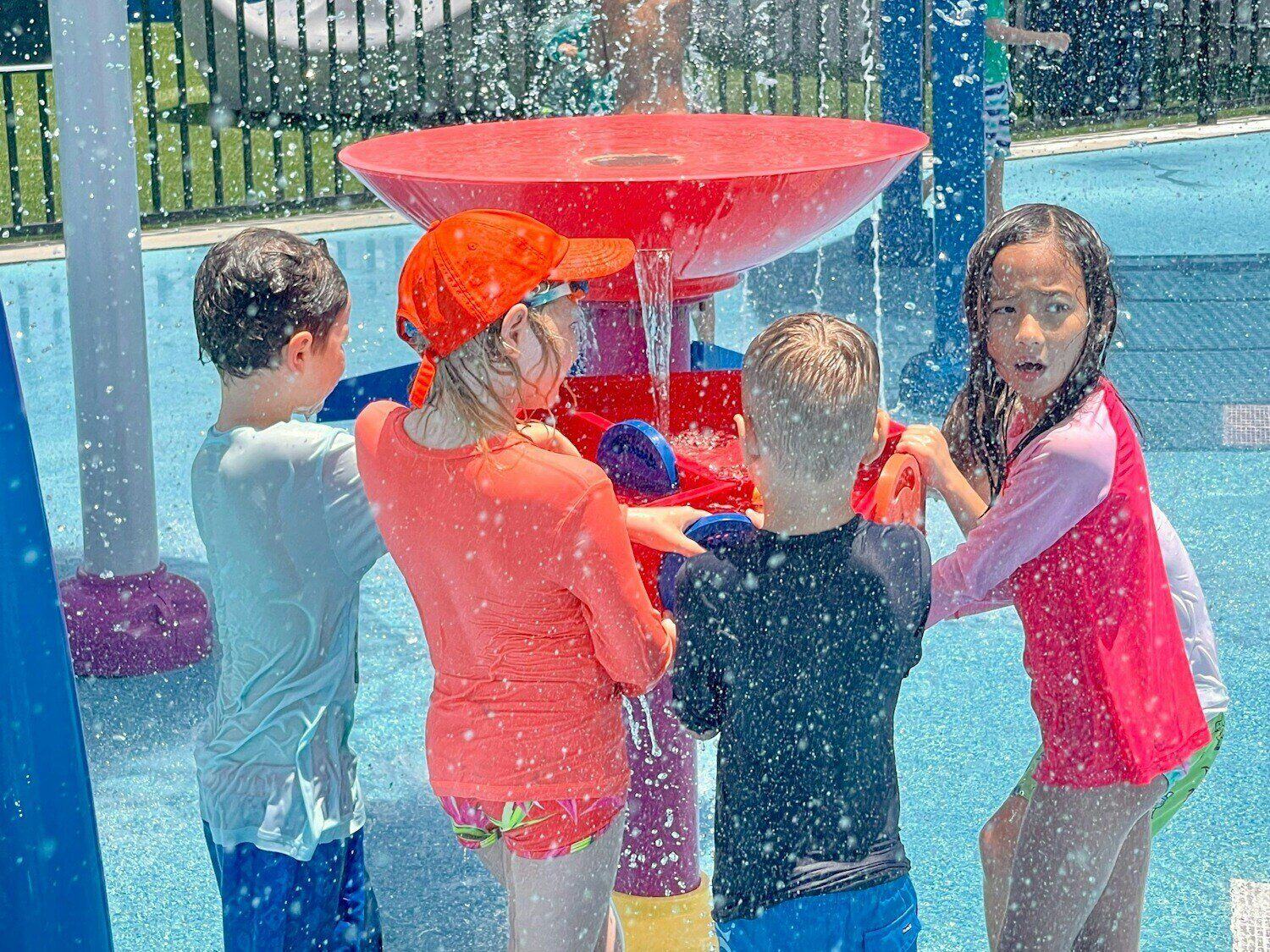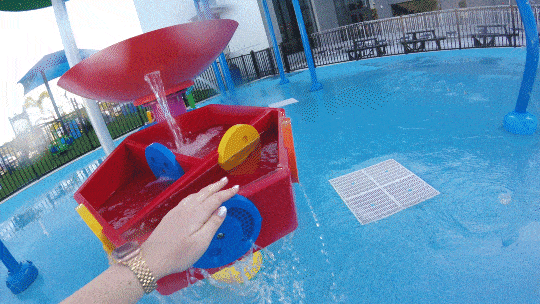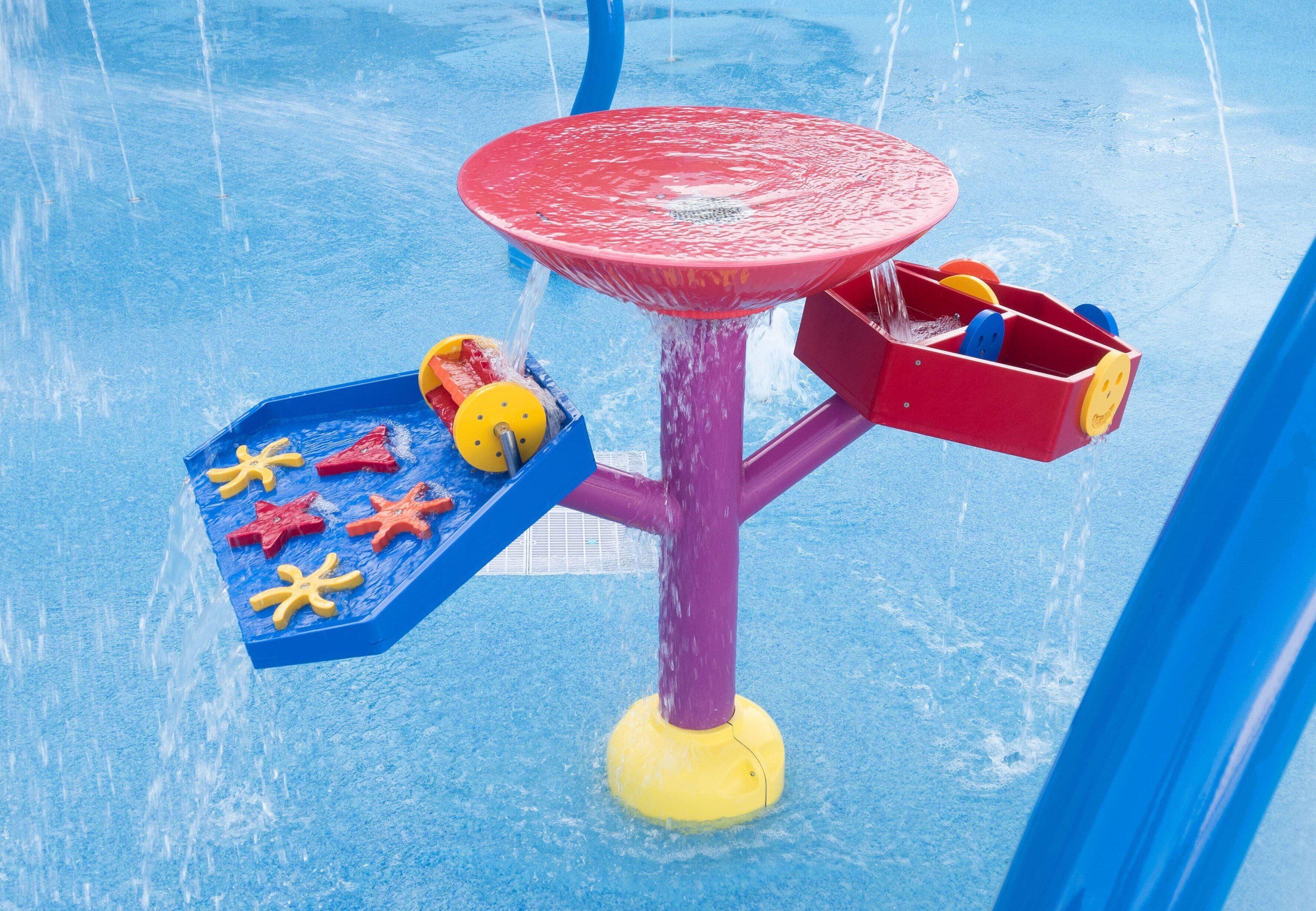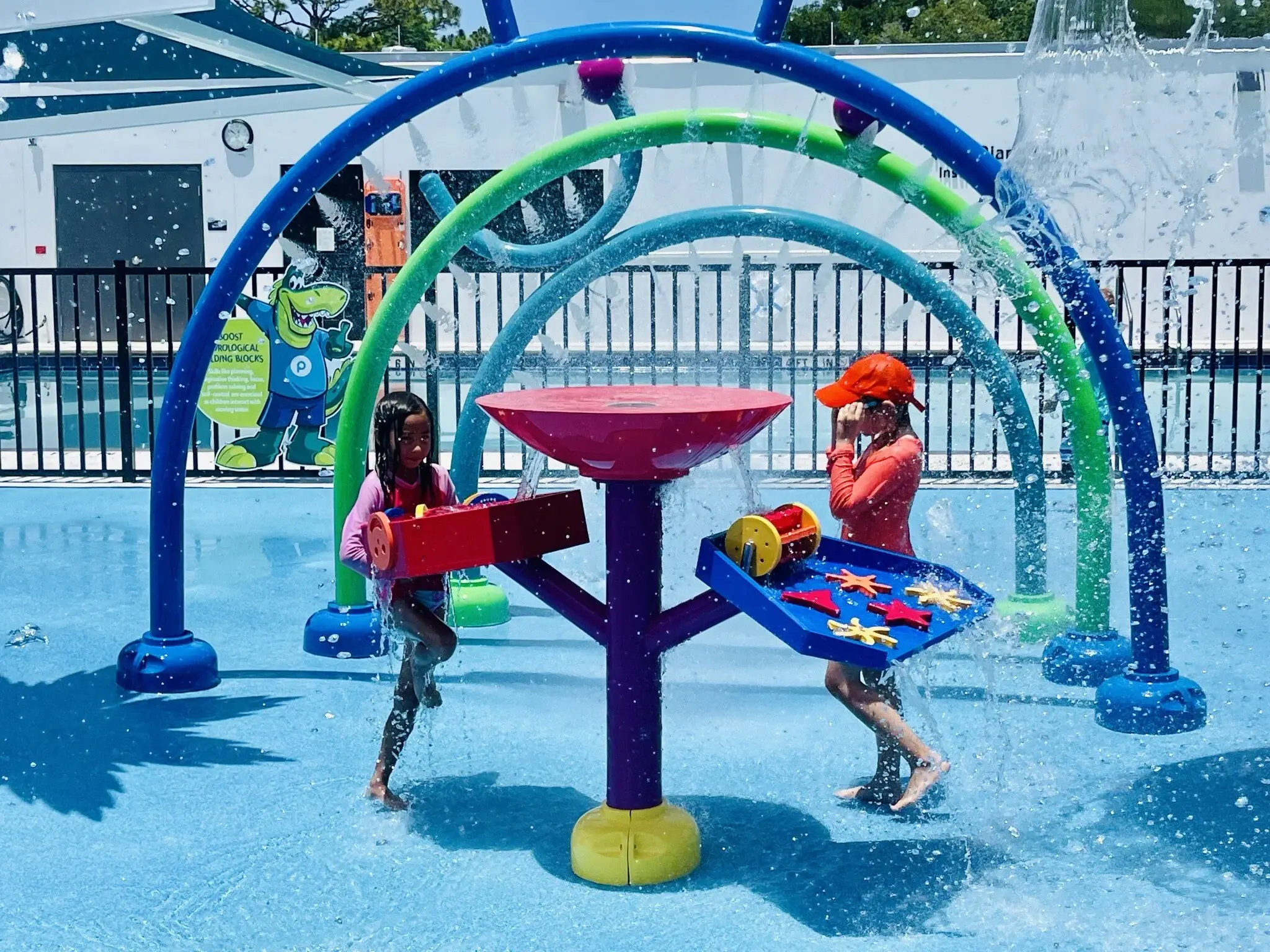Exploring Child Development with Water Play Tables
Splash pads and spray parks are becoming increasingly popular, with more being installed in parks, aquatic centers, and urban areas than ever before. This is due to several different benefits that splash pad designs provide including: improved safety due to their lack of standing water, inclusive characteristics, versatility, and their attractive interactive water features. One of the rising trends in interactive water feature design is water play tables where children experiment with the physics of water. Water play tables with gears and spinners, like the AquaWorx Aqua Tabletop, not only provide an interactive form of water play but also offer rich opportunities for cognitive development.
Promoting Social and Emotional Growth

Water play is inherently social, often involving multiple children engaging in imaginative, creative play together. Water play table designs feature multiple tables with various gears and spinners that provide different learning experiences, allowing children to work together to control the flow of water. This environment fosters essential social and emotional skills, such as:
Cooperation: Children learn to share space and resources, take turns, and collaborate on tasks, enhancing their ability to work with others.
Communication: Describing their actions and plans to peers helps improve verbal communication skills and the ability to express ideas and feelings.
Emotional Regulation: Water play's sensory nature can be soothing, helping children manage emotions and reduce stress.
Basics of Physics and Mechanics

When children manipulate the spinners on the water play table and control the flow of the water, they engage in hands-on learning. This interaction helps them understand basic principles of physics and mechanics, such as:
Cause and Effect: By turning the spinners and watching the water flow off the water play table, children learn that their actions have consequences, fostering an understanding of cause-and-effect relationships.
Problem-Solving: Figuring out how to align the spinners to get the desired motion or outcome stimulates problem-solving and critical thinking skills.
Spatial Awareness: As children watch the water pour over the spinners and see how it navigates through various components, they develop spatial awareness and learn about directionality and flow.
Developing Fine Motor Skills

The intricate actions involved in manipulating gears and spinners on a water play table enhance fine motor skills and hand-eye coordination. These skills are crucial for later tasks such as writing, buttoning clothes, and tying shoelaces. Specific benefits include:
Precision and Dexterity: Turning small gears and managing the flow of water require precise movements, which strengthen fine motor skills.
Hand Strength: Repetitive actions, like spinning and turning, help build hand and finger strength, essential for various manual tasks.
Building Scientific Understanding
These interactive water play tables act as miniature science labs, offering practical experiences with scientific concepts. As children experiment with water flow, observe the spinners movements, and predict outcomes, they build foundational knowledge in areas such as:
Physics: Understanding motion, force, and the mechanics of gears and spinners.
Engineering: Recognizing how components interact and how changes affect overall function.
Environmental Science: Learning about water flow, pressure, and how natural forces work in a controlled environment.
Water play tables with gears and spinners are more than just entertaining-they are dynamic educational tools that support holistic child development. By integrating cognitive, motor, social, and emotional learning opportunities, these tables provide a multifaceted approach to early childhood education. As children engage in playful exploration, they develop essential skills that will benefit them throughout their lives.

